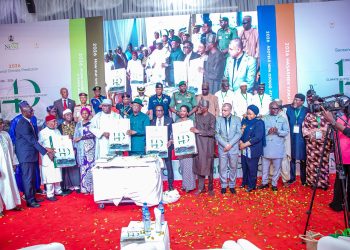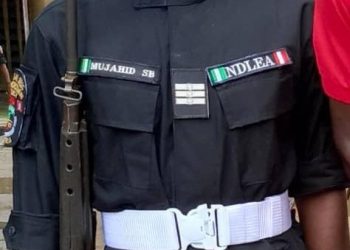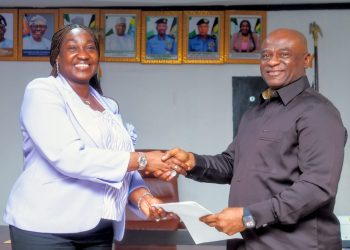By Nkechi Eze
The Independent Corrupt Practices and Other Related Offences Commission (ICPC) has reaffirmed its determination to promote transparency and accountability in Nigeria’s basic education sector through enhanced collaboration with the Universal Basic Education Commission (UBEC).
In an official statement signed by the Director, Public Enlightenment and Education, ICPC, Demola Bakare, it was disclosed that the ICPC Chairman, Dr. Musa Adamu Aliyu, SAN, made the declaration when he received the Executive Secretary of UBEC, Dr. Aisha Garba, and her management team during a courtesy visit to the Commission’s headquarters in Abuja.
The meeting, long anticipated but delayed due to scheduling constraints, marked a significant milestone in strengthening institutional cooperation between the two agencies aimed at improving governance and service delivery in Nigeria’s education system.
Dr. Aliyu, while welcoming the UBEC delegation, underscored the shared mandate of both institutions in ensuring transparency, accountability, and good governance in the management of public funds, particularly those allocated to basic education. He emphasized that collaboration between ICPC and UBEC would help guarantee that resources dedicated to educational development are efficiently utilized for the benefit of Nigerian children.
The ICPC Chairman lauded Dr. Aisha Garba’s leadership and the Commission’s sustained commitment to delivering free, compulsory, and quality basic education to every Nigerian child. He explained that ICPC’s anti-corruption approach transcends enforcement, focusing also on preventive strategies, education, and system reviews designed to strengthen integrity and reduce institutional vulnerabilities.
Highlighting the ICPC’s Constituency and Executive Projects Tracking Initiative (CEPTI), Dr. Aliyu described the platform as a vital mechanism for monitoring the execution of UBEC-funded projects across the country. He said CEPTI has helped ensure value for money, transparency, and accountability in the implementation of educational infrastructure and programs, aligning with UBEC’s mission to expand equitable access to quality education nationwide.
In her remarks, the Executive Secretary of UBEC, Dr. Aisha Garba, reaffirmed the Commission’s zero-tolerance stance on corruption and detailed the proactive measures being taken to entrench ethical conduct in its operations. She disclosed that UBEC has established Anti-Corruption and Transparency Units (ACTUs) across all its offices to institutionalize accountability and transparency at every level.
Dr. Aisha also revealed that UBEC had recently undergone a procurement audit conducted by the Bureau of Public Procurement (BPP), achieving full compliance with the Public Procurement Act. She described the outcome of the audit as a strong validation of UBEC’s commitment to financial discipline, due process, and effective resource management.
According to her, all public officers within the Commission, at headquarters, zonal, state, and local levels have signed a Code of Transparency, further strengthening accountability within the organization.
She described the collaboration with ICPC as “strategic and essential” to building preventive anti-corruption mechanisms within the basic education sector. Dr. Aisha also sought ICPC’s technical support in expanding anti-corruption frameworks and capacity-building initiatives across the 36 states and the Federal Capital Territory.
The meeting ended with a joint pledge to deepen inter-agency collaboration. Dr. Aliyu proposed the development of a Memorandum of Understanding (MoU) between ICPC and UBEC to formalize and strengthen their partnership, assuring that the Commission remains steadfast in protecting Nigeria’s educational resources and promoting integrity-driven governance at all levels.

















